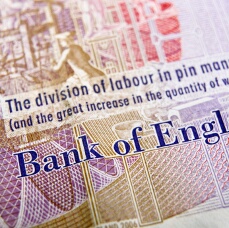The British pound remained weak on Friday as the currency held to most of the losses it had yesterday. Todayâs data, which was largely mixed, made the British pound incapable of finding support in economic releases at a time when politicians in the United Kingdom failed to reach unity.
A snap general election was held in the United Kingdom on Thursday following a call by Prime Minister Theresa May last April, which was supported by 522 to 13 of Members of Parliament. May said that her sudden call for an early election was with the aim of uniting the nationâs political power.
However, the vote backfired as Britons chose 318 Conservatives for seats in the House of Commons, which fell short of the 326 seats required to have a majority. The Labour Party came in second with 262 seats, while the Scottish National Party got 35 seats and the Democratic Unionist Party won 10 seats.
Mayâs bid for a wider support that would have allowed her to smoothly move ahead with the Brexit negotiations failed to produce the outcome she had hoped for. The prime minister is reportedly pursuing a deal with the Democratic Unionist Party to boost the power of the Conservative Party enough for legislation to pass in parliament.
In a statement today, May said that the new minority administration would guide the United Kingdom in the upcoming Brexit talks, which will start in 10 days. The prime minister also apologized to her Conservative colleagues who lost their positions as Members of Parliament.
The pound sharply declined as the results of the election came in, as traders felt that the new parliamentâs composition casts doubts on the future of Brexit. The British currency was further weighed down by weak manufacturing data, which overshadowed a report that revealed a smaller trade gap.
The Office for National Statistics released a report that revealed that industrial production grew 0.2% in April, which matched the growth of manufacturing production within the same month. The data disappointed analystsâ forecast of a 0.8% growth for industrial production and a 0.9% gain for manufacturing production.
In a separate report, the statistical office said that the UK trade gap between exports and imports shrank to 2.05 billion pounds in April from 3.90 billion pounds in March. Most of the decrease was due to a smaller goods trade gap, which was 10.38 billion pounds last month from 12.05 billion pounds in the previous month.
GBP/USD traded at 1.2738 as of 20:59 GMT after touching 1.2645 at 06:50 GMT, the pairâs lowest level April 18. GBP/USD began trading today at 1.2741.
If you have any questions, comments or opinions regarding the Great Britain Pound,
feel free to post them using the commentary form below.



Be First to Comment